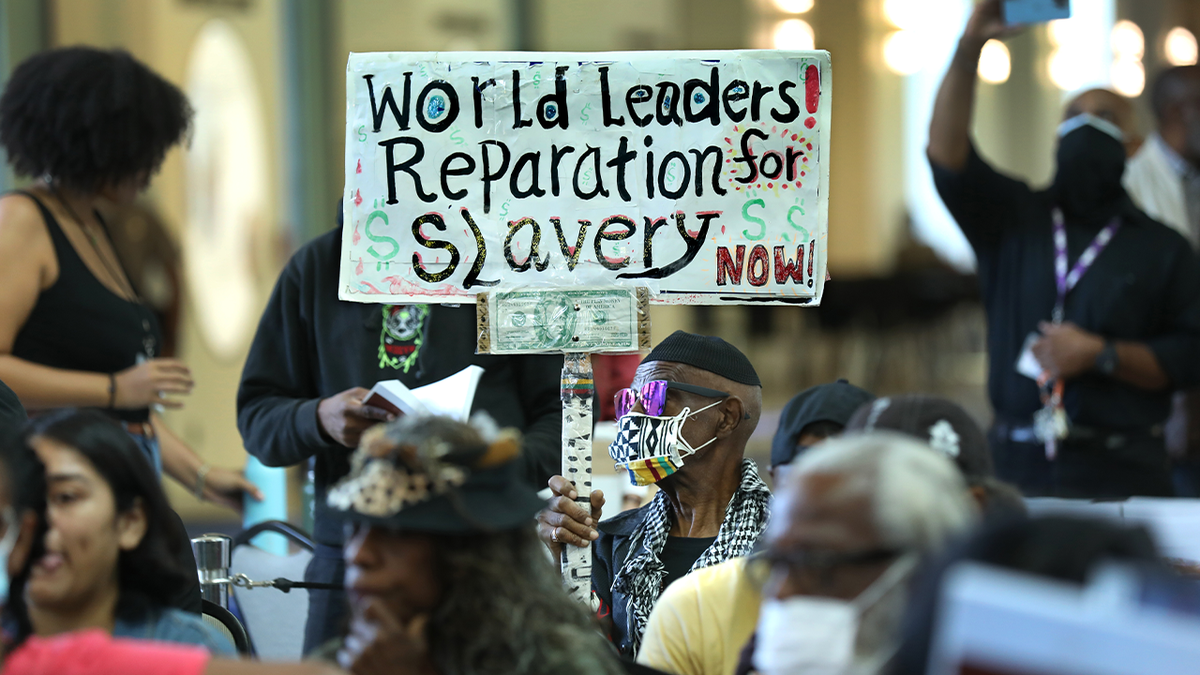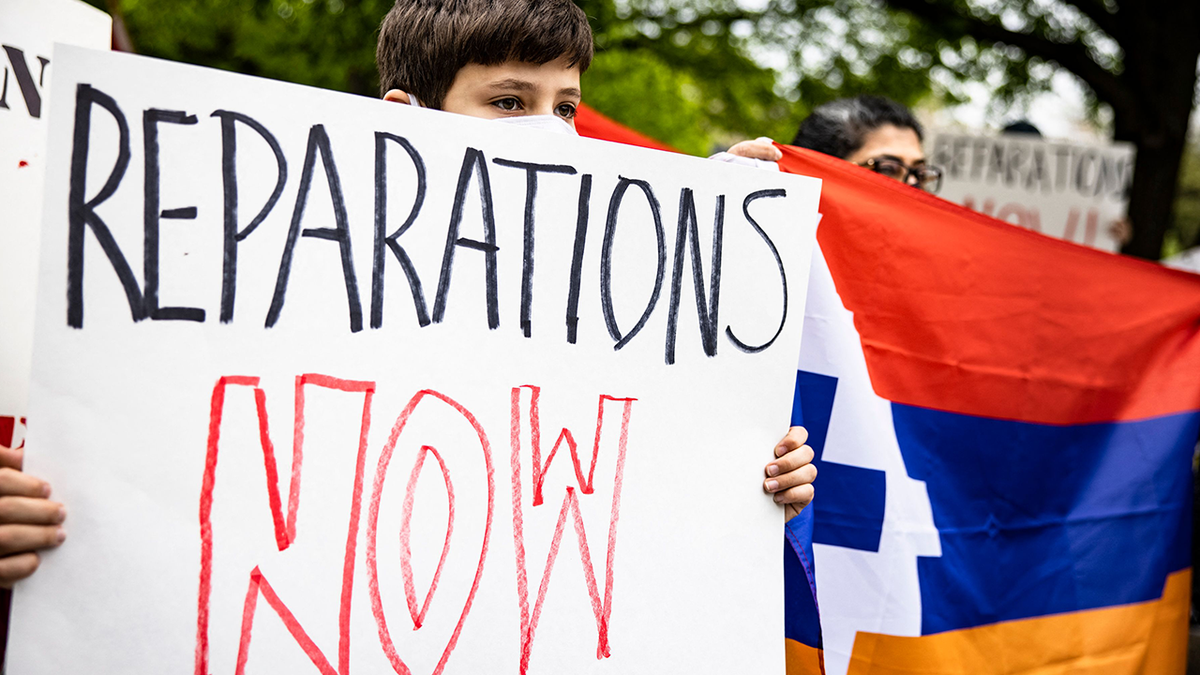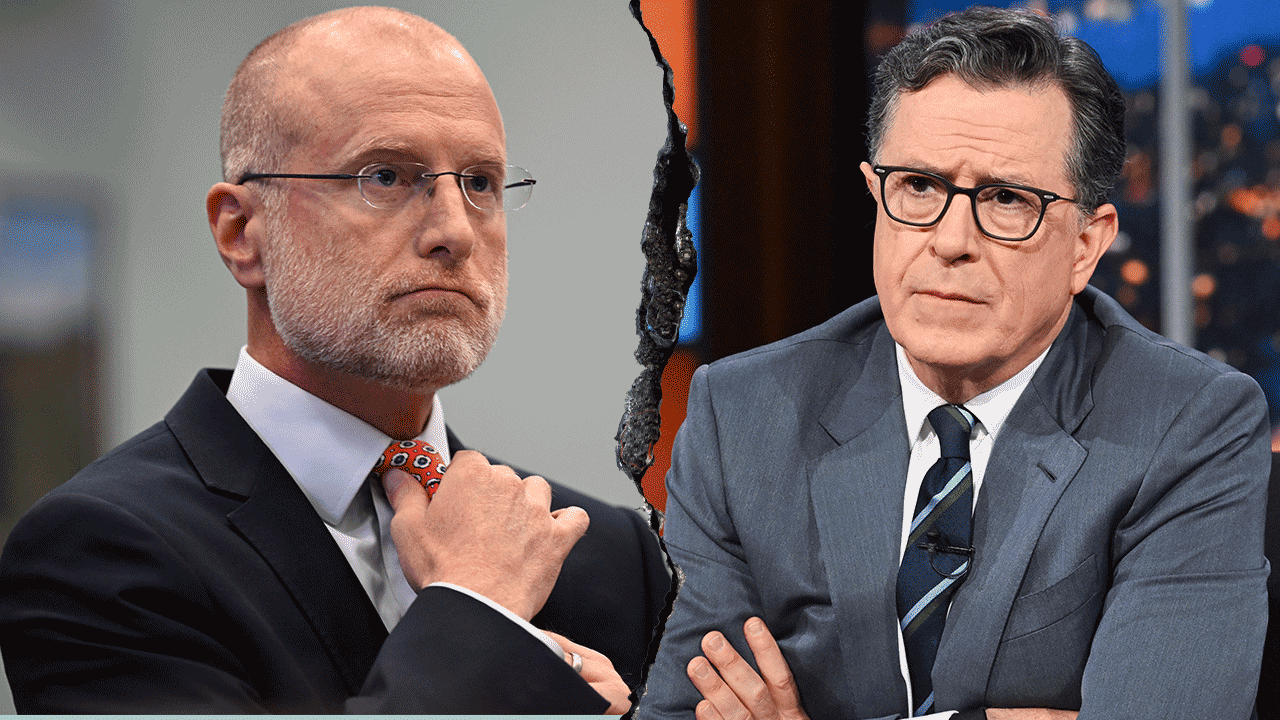Polling shows why most Americans don't support reparations
University of Massachusetts Amherst professor, Jesse Rhodes, discusses his extensive polling on reparations.
More than 60% of every ethnic and racial demographic group think reparations in Evanston, Illinois, are good policy for the city, according to a new study conducted by Northwestern University's Center for the Study of Diversity and Democracy (CSDD) and NORC at the University of Chicago.
In 2019, Evanston created a government-funded reparations program and two years later, in March 2021, the Evanston City Council voted 8-1 to approve a reparations plan that would provide $25,000 for qualifying Black residents to address harms caused by a pattern of housing discrimination and segregation that existed between 1919 and 1969.
The move made the Chicago suburb the first city in the country to provide government funds to address slavery and past discrimination of Black Americans in America.
As of Aug. 16, 2023, Evanston had disbursed $1,092,924 in reparations funds through the Local Reparations Restorative Housing Program.
As part of the survey, Evanston residents were asked two questions: whether they believe the reparations program is good public policy and how the passage of the reparations ordinance impacted their trust in city government, the Chicago Tribune reported. The study surveyed 3,500 Evanston residents, about 5% of the city population, between February and June.
SAN FRANCISCO'S PROPOSED REPARATIONS PLAN COULD COST CITY $100 BILLION: REPORT
Results showed 70% of White respondents, 64% of Black respondents, 61% of Latino respondents and 62% of Asian respondents believe the program is a good public policy for the city, according to a Northwestern University press release. Previous surveys nationwide have never recorded more than 20% support among White Americans for reparations.
In addition, after the Evanston City Council voted to pass the reparations ordinance, it led to double-digit net increases in trust of city government among all ethnic and racial demographic groups, as well as across all nine of the city’s wards, the press release said.

A Los Angeles resident holds up a sign as the Reparations Task Force meets to hear public input on reparations at the California Science Center in Los Angeles on Sept. 22, 2022. (Getty)
"The survey is the first feedback that we have on an operational reparations program, so it is incredibly important that the majority of opinion across racial groups views reparations positively," Tabitha Bonilla, the director of the CSDD Poll and coauthor of the survey, said. "The data suggests that Evanston’s reparations program can be instructional for other municipalities and governments that wish to establish reparations programs."
Director of Northwestern’s Center for the Study of Diversity and Democracy Alvin Tillery said the study's authors "expected to find more support for reparations" in Evanston "than we might see in other parts of the nation" because the city's population "is highly educated and has been very engaged in conversations about racial equity over the past several years."
But, he said he was "stunned" that more than 60% of every ethnic and racial demographic group thinks the program is good public policy for the city. Tillery also spoke with the Chicago Tribune, where he speculated why reparations typically don't become official policy.
"The reason that reparations never moves forward is you’ve got all of these octogenarian and septuagenarian Democratic politicians, typically White men, who may or may not think it’s good public policy but they’re terrified you’re going to lose White voters if you start talking about race too much," he said. "Evanston is a place where that’s just not going to happen."

A person wears a Reparations Rally hat during a rally for reparations at the African Burial Ground National Monument on July 23, 2021, in New York City. (Getty Images)
Evanston Mayor Daniel Biss called the survey results "striking" and said they demonstrate that when policymakers "do the right thing and do so with transparency, moral clarity and public input, they can build public support even for very controversial ideas."
"I hope they inspire public officials across the country to be bold and ambitious in pursuing justice," he added.
Although, many critics remain wary of reparations. The Manhattan Institute released a report last month that estimated it would cost American taxpayers an estimated $15 trillion to close the Black-White wealth gap should reparations be implemented across the country.
"That logic becomes much harder to sustain when you have large groups of recent immigrants who are very obviously not implicated in historical injustice and who are also themselves often systematically disadvantaged," Manhattan Institute fellow Charles Fain Lehman, who conducted the study, told Fox News Digital. "Asking those people to take responsibility for injustices 150 years ago is not something they are necessarily willing to swallow."
Because many Americans did not have ancestors living in the U.S. in the slavery era, Lehman said he believes it is unjust to ask descendants of post-Civil War immigrants to foot the reparations bill and "with each passing year, immigration further shrinks the population share plausibly eligible to pay a debt for slavery."
Robin Rue Simmons, chair of the Evanston Reparations Committee, which in 2019 introduced the reparations plan to the City Council, told the Chicago Tribune that the study results show reparations programs can be successful.

Other polling indicates support for reparations isn't as widespread nationwide. ((Photo by SAMUEL CORUM/AFP via Getty Images))
"Seeing increased belief and trust in government is an important outcome in this report, especially in Black communities where we long have reason not to trust government bodies," she said. "This report will be the key document in some cases that can move cities beyond concerns of how it might divide a community."
Simmons also addressed how public perception of reparations have changed in the four years since she first introduced the reparations ordinance in 2019.
"In 2019 when I introduced the reparations legislation in Evanston, it was a political nonstarter. It was too provocative, it was unattainable, it was dismissed in many case," she said. "Hearts and minds in Evanston have changed. They have seen it is attainable, it doesn’t break anything, it only makes us better."
For more Culture, Media, Education, Opinion and channel coverage, visit foxnews.com/media.









































